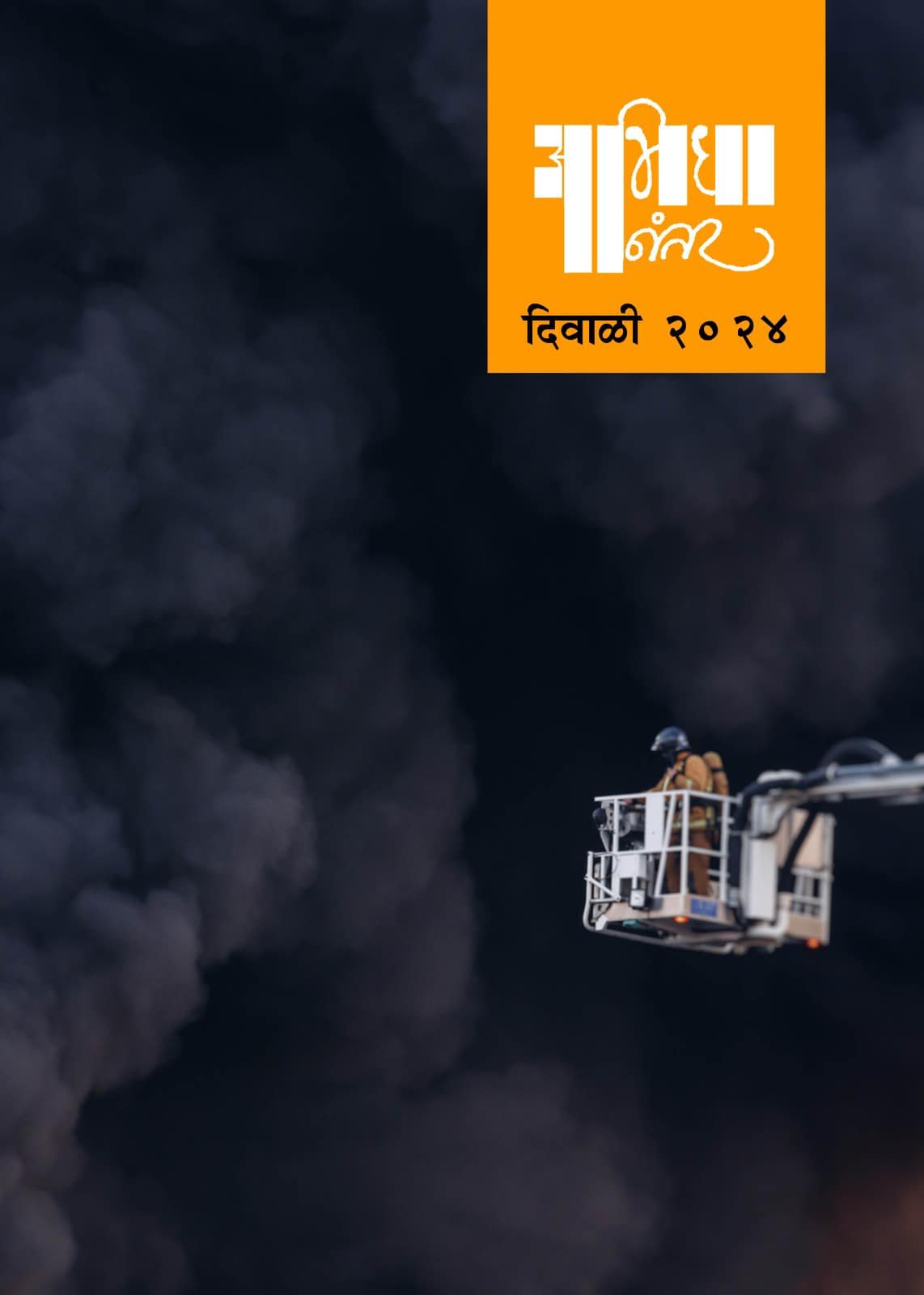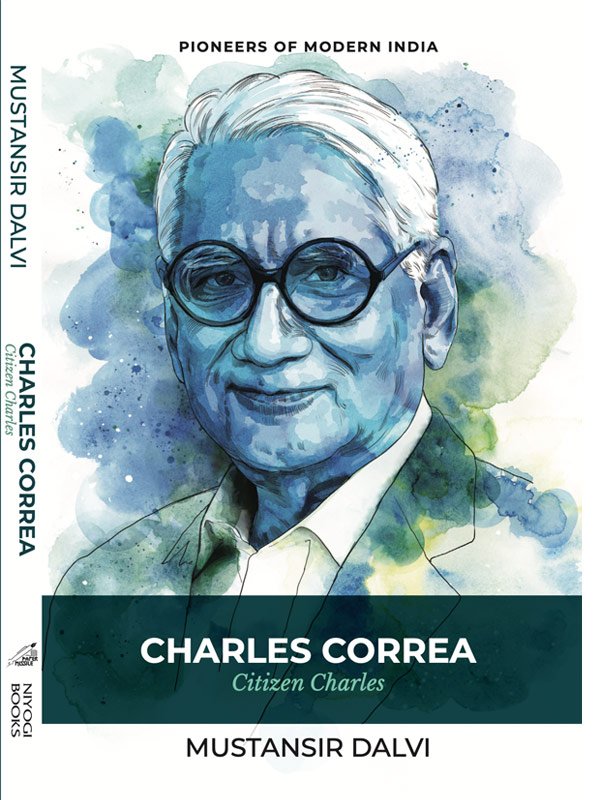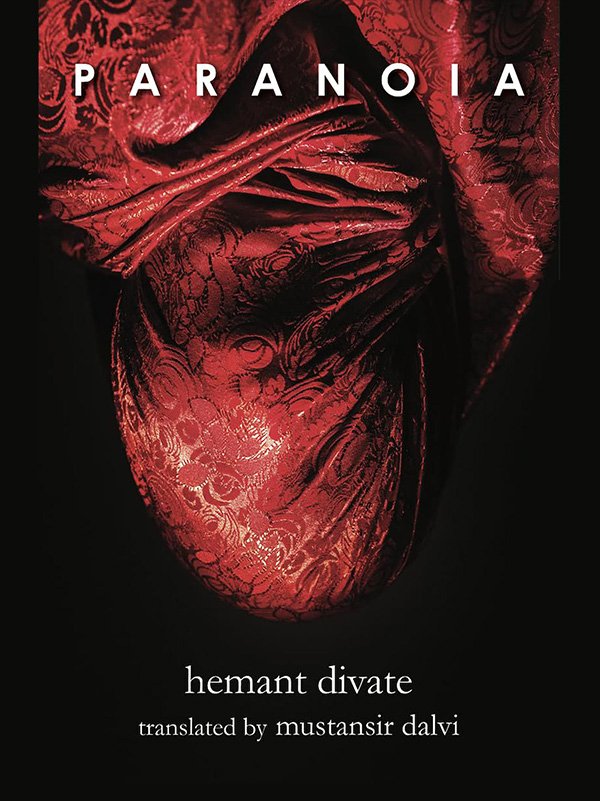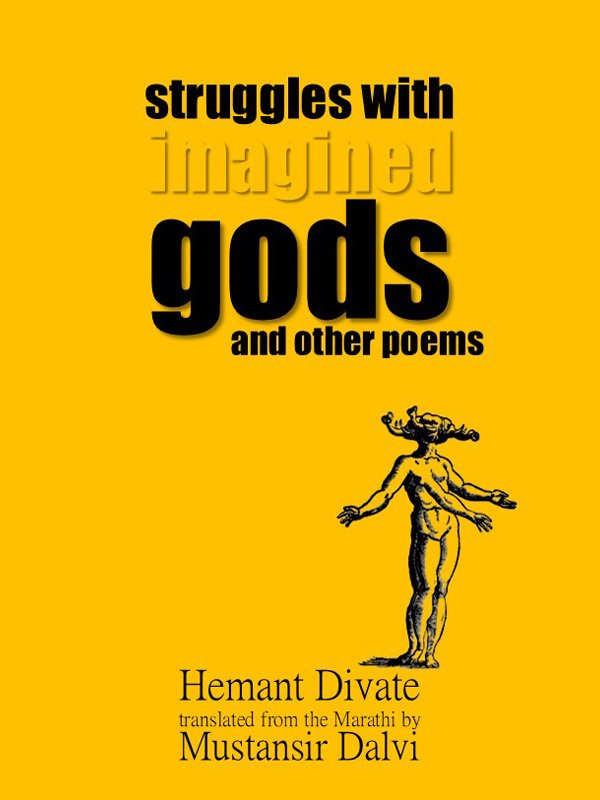Struggles with Imagined Gods
Struggles with Imagined Gods brings the urban phantasmagoria that one has come to associate with Hemant Divate’s poetry into the English language. This is a poetic hyper-reality in which you are assailed by an avalanche of fast-moving, colliding images of a culture dizzy on retail therapy, drunk on eternally deferred promise. This is an indictment of a culture caught in an awkward moment of history. In this climate of insatiable consumerist greed, the old gods are irrelevant. The new gods are those that understand the lingo of seduction and perpetual discontent.
‘Praha, I’ll be back’ by Hemant Divate, translated by Mustansir Dalvi, read on the Charles Bridge, Prague
Reviews
Significantly, Struggles with Imagined Gods stands testimony to what good translation can do to animate poetry. Far too often, the most linguistically capable prose translator turns embarrassingly clunky when it comes to verse. The translator’s understanding of poetic form is as vital as competence in the target language – a fact, sadly, often overlooked. Thankfully, in Mustansir Dalvi’s capable hands, Divate’s poems turn into a series of tonally distinct explosions on the tongue, in which it is possible to discern the astringent from the toxic, the salty from the acidic.
In Struggles, the poet’s imagined god “searches for humanity/ in this vast dung-heap of rags.” Lost faith, lost childhood, lost language, mourned, but never surrendered to saccharine nostalgia. Read this book and be disturbed. You may dislike the full-frontal assault in its pages, but you cannot fail to be affected by the “jingle of life/ that slowly scrapes across the surface of dreams. It is in Mustansir Dalvi’s translation that the charge of the original Marathi crackles into an electricity that powers the lines in English. There is great confidence here, the confidence of a poet with access to multiple spoken fluencies, solidly grounded in the language that he writes in. This book reaffirms my belief that poets make the best translators of poetry, and it is a delight to see that both Divate and Dalvi get equal weightage on the cover, rightly (and all-too rarely) claiming co-authorship of the text.
Divate has an appetite for the contemporary, devouring both its poisons and its nourishments with gargantuan ease. A rich feast, but not for weak stomachs.
Like the surrealists he admires, Hemant Divate favours the trick mirror and the unsettling image. His work reminds us that modernism came to Marathi literature before it came to Indian writing in English.
Hemant Divate existentialist ‘struggles with imagined gods’ depicts today’s Indian consumerist society as a meaningless / absurd world, filled with disoriented individuals. With colourful contrasts and his ironic,hallucinated and hectic writing-style, he swamps the reader, forcing self examination. For this Marathi Sisyphus, poems are lower case; flattened like society is flattened before the illness of religions. Nostalgia is a refuge, but not a cure. Struggles with imagined gods is another of Divate’s necessary contributions to contemporary Indian poetry.
More Books

Mustansir Dalvi Yanchyashi Samwad with Manya Joshi

Charles Correa: Citizen Charles

